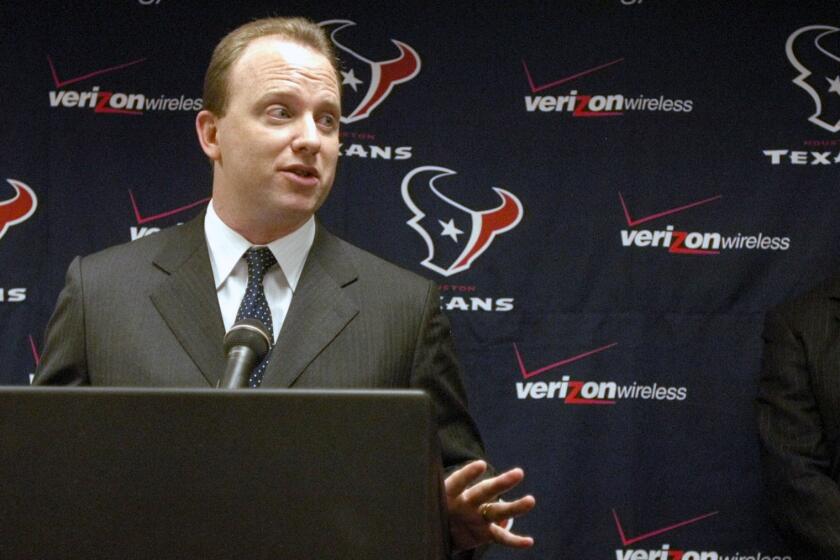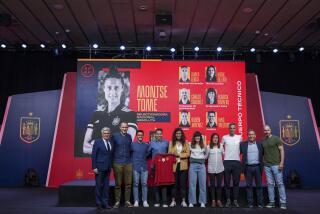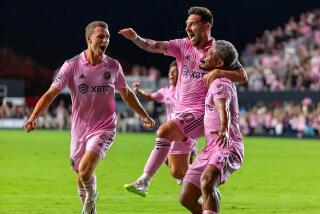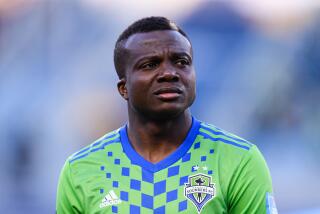Realities of COVID-19 make for uncomfortable situation for Spanish soccer
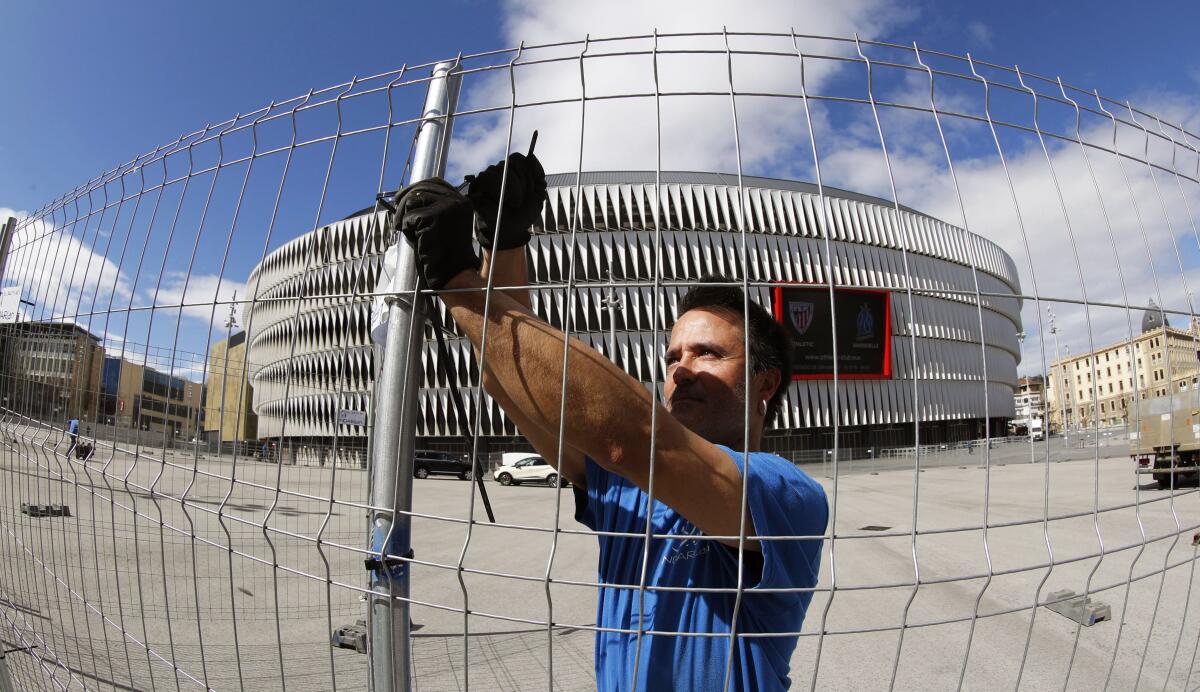
Two days after Francisco Garcia, a 21-year-old coach, died from COVID-19, soccer officials in Spain announced the country’s top league would begin playing its games in empty stadiums.
Two days later, La Liga announced it wouldn’t be playing at all, and on Monday announced it was suspending the rest of its season indefinitely. In a country where soccer is less a sport and more a religion, it was a decision with which few disagreed.
“A 21-year-old boy, with all his life ahead? There are no words; there cannot be,” Ramón Rodríguez, director of soccer for La Liga club Sevilla, wrote in Spanish in an email interview.
“For his memory,” continued Rodríguez, better known as Monchi, “for the memory of the thousand[s] of Spaniards who have died, for the thousands of people who are having a hard time in the world due to this virus, we must be responsible.”
LAFC general manager John Thorrington recalls sports being the escape, but with the coronavirus pandemic that escape has been eliminated.
La Liga isn’t alone. Australia’s A-League is still hobbling along, playing some of its games behind closed doors, but the rest of the world’s soccer leagues have shut down. MLS halted its season March 12, a day before Spain did, and suspended team training sessions a day later.
That leaves players everywhere struggling to deal with an uncommon situation that has produced a common void: a deadly pandemic that has left them sheltered at home without their teammates, their fans and the sport they shared.
“Nobody is immune to this virus,” said Sevilla captain Jesús Navas, a World Cup champion with Spain. “Soccer is my profession, I love this sport with all my soul. Soccer has given me everything. But the most important thing is our health.”
Few countries have suffered more than Spain, where more than 2,3200 people have died. Only Italy and China, which have significantly larger populations, have been hit harder.
“The best we can do now — not only footballers, everyone — is isolate ourselves,” Navas continued. “The Spanish, in general terms, we are setting a great example of responsibility.”
A responsibility La Liga teams Real Valladolid, Osasuna and Eibar took to heart by declining COVID-19 coronavirus tests purchased by the league, donating them instead to vulnerable people who had shown symptoms of the virus.
La Liga players, as with those in MLS, are working out alone, and trying to follow individualized regimes from home without encouragement from teammates. It isn’t always easy.
“Monchi made it clear to us that this was not a vacation, that he wanted us all to do our best not to lose shape,” Navas said. “It is rare that we work alone. But every day I do a very demanding workout. Our nutritionist is also in permanent contact with us.”
But if the physical and nutritional stuff is demanding, the mental challenges of waiting out a pandemic are more difficult.
“We are professionals and now more than ever we have to prove it,” said Navas, 34, whose 27 La Liga appearances lead the team. “I take this as a challenge for self-improvement.
“As captain I want to be an example for my teammates. This situation is a challenge for every elite athlete. Difficult and adverse times are when people bring out the best in themselves. We as professional footballers must now give our best.”
The stoppage in play interrupted what was shaping up to be a magical season for Sevilla, which trailed only Barcelona and Real Madrid in the league table and had made the Round of 16 in the Europa League. Sevilla hasn’t finished in the top three in La Liga since 2009 and last won a European tournament in 2016.
U.S. Soccer has named sports agent and former MLS executive William Wilson as CEO and secretary general, replacing the retired Dan Flynn.
There is no certainty either competition will be finished.
“We have to see how this pandemic evolves,” said Monchi, who played 10 seasons in goal for Sevilla. “Logically, I want to be optimistic. But none of that makes sense if we don’t first defeat the coronavirus. Health first, then everything else will come.”
Aside from the games, Monchi said what he believes the players are missing most is the camaraderie that comes from being around one another. Those relationships have now gone online, into impersonal chat rooms or text-message groups.
“The best thing, or at least for me, in the life of a player is to live the day-to-day life of a dressing room. Especially if it is a healthy locker room, with a good group, such as the one we have this year,” he said. “They talk to each other, they get motivated.
“I try to see the good side of things, even in this very complicated situation. So I believe our group can come out much stronger.”
If there is a silver lining to the black cloud hovering over a sport with no games, Monchi said it is the appreciation that will come when the matches resume — matches that will no longer be taken for granted.
“Everything will pass, everything will turn out well,” he said. “And when we get out of this, we will give much more value to events and moments of our life than before. Because they are daily, we did not value in their fair measure before.”

